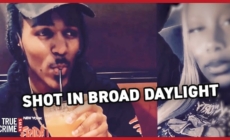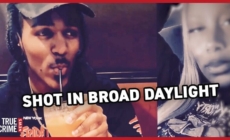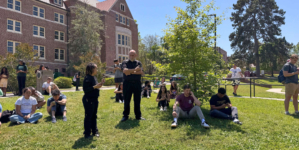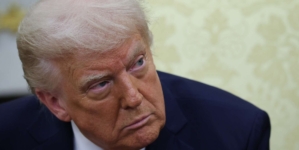-
Nebraska coach Matt Rhule replaces spring game with ‘The Husker Games’ - 8 mins ago
-
Pistons’ Malik Beasley Takes Massive Shot at Knicks Star Ahead of Playoff Series - 30 mins ago
-
Eli Lilly says GLP-1 pill for diabetes and weight loss effective in study, plans to seek FDA approval - 40 mins ago
-
Camera footage caught him shooting his girlfriend in broad daylight - 40 mins ago
-
Athletics vs. White Sox Highlights | MLB on FOX - 50 mins ago
-
Who Is FSU Shooting Suspect Phoenix Ikner? What We Know - about 1 hour ago
-
Some U.S. states want to ban food stamp recipients from buying soda and candy. Here’s why. - about 1 hour ago
-
Camera footage caught him shooting his girlfriend in broad daylight - about 1 hour ago
-
Mariners vs. Reds Highlights | MLB on FOX - 2 hours ago
-
Californians in Congress push for break on mortgage payments after natural disasters - 2 hours ago
No, Mr. President, Executive Orders Are Not Royal Decrees | Opinion
President Donald Trump’s promise to be a “dictator on day one” was not an empty threat. The beginning of his second term has been marked by the most egregious presidential power grab in modern American history.
Trump’s influence and power in Washington today are bolstered by Republicans controlling both houses of Congress, a conservative majority at the U.S. Supreme Court, and a contingent of billionaires, led by Elon Musk, who are more than willing to use their war chests to promote his agenda.
This has enabled the president to use “stroke of the pen” executive orders to unilaterally remake the government, without having to negotiate with Congress or wait for legislation, apparently believing the other two branches of government won’t stop him.
SAUL LOEB/AFP via Getty Images
Trump issued more executive orders on day one than any previous president, since the Federal Register began keeping track of such things. The volume of executive orders is less problematic than the fact that many of them claim powers that the Constitution or laws specifically grant to other branches of government and the states.
Trump’s second term presents profound and urgent questions about the rule of law and limits of executive power. The president swears an oath to “faithfully execute the laws,” but his executive orders openly violate some laws (with a claim they are unconstitutional) and grab powers allocated by the Constitution to other branches of government.
To combat these actions, a hard line must be drawn by our courts when unconstitutional executive orders threaten the rule of law. The president is not a king. Executive orders are not blank checks for exercising presidential will.
How Executive Orders Work (and Where Trump’s Do Not)
Executive orders (or EOs) are presidential instructions that direct executive branch agencies and staff to take (or stop taking) specific actions. In theory, the President uses them to explain how to implement laws passed by Congress. Executive orders do not create new laws — only Congress can do that.
Presidents have used executive orders to great effect throughout history. The Emancipation Proclamation was an executive order, as was Harry Truman’s directive to desegregate the military.
Some of President Trump’s executive orders fall within the bounds of the law, including those rescinding President Biden’s executive orders. However, many others are unconstitutional and illegal.
One clear example is the president’s executive order on voting and elections, which is nothing more than the wish list of a politician long fixated on promoting election misinformation.
This executive order directs several independent federal agencies to change the rules for federal elections and requires Americans to jump through unnecessary hoops to register to vote. These mandates, if allowed to take effect, would potentially disenfranchise millions of voters.
The president has no authority to implement this executive order. The Constitution explicitly gives states the power to run federal elections. It gives Congress, not the president, the power to pass laws setting national voting standards and overriding state election laws when necessary.
Trump’s executive order strategy goes far beyond the goal of implementing particular policies. His recent executive order attempting to place independent regulatory agencies under presidential purview betrays a desire to pursue an extreme version of the unitary executive theory favored by many Trump allies.
Independent agencies are, by definition, created by Congress and designed to be insulated from White House pressure to ensure they can focus on their mission and not cater to the political whims of the president. This is particularly important when an agency’s mission involves regulating the political activities of current presidents and presidential candidates, as is true of the Federal Election Commission (FEC).
The FEC is the independent agency I served in from 1991 to 1995 as a Commissioner and Chairman. It was established following public outcry over Watergate-era campaign finance scandals and was designed by Congress to be independent of the President because it regulates candidates and parties. Thanks to the president’s illegal executive order, the agency now faces a clear threat to its independence and its mission.
This is part of the Trump administration’s effort to reinterpret the role of the president and the power in the executive branch. Under the law, however, any attempt by the president to supersede the prerogative of independent agencies violates the separation of powers and congressional authority.
Drawing the Line in the Sand
In the absence of congressional action, courts can step in to protect fundamental rights, sending clear signals to the American people about where the legal line exists on presidential power. This explains the dozens of lawsuits challenging Trump’s executive orders.
For our part, Campaign Legal Center is representing clients who are challenging Trump’s executive order on voting and elections and challenging the U.S. DOGE Service in part for exceeding its authority granted via executive order.
We do not know if Trump’s flurry of executive orders will slow down. But the pro-democracy community’s pursuit of a government that represents every American, regardless of wealth, power or political affiliation, will continue.
While our elected representatives have not yet asserted their authority in any meaningful way, the battle over the balance of power is now fully engaged in the judiciary. The outcome of that fight remains to be seen. Ultimately, power belongs to the people and the voters.
Trevor Potter is the president and founder of Campaign Legal Center. A Republican former chairman of the Federal Election Commission, he was general counsel to John McCain’s 2000 and 2008 presidential campaigns and an adviser to the drafters of the McCain-Feingold campaign finance law.
The views expressed in this article are the writer’s own.
Source link































